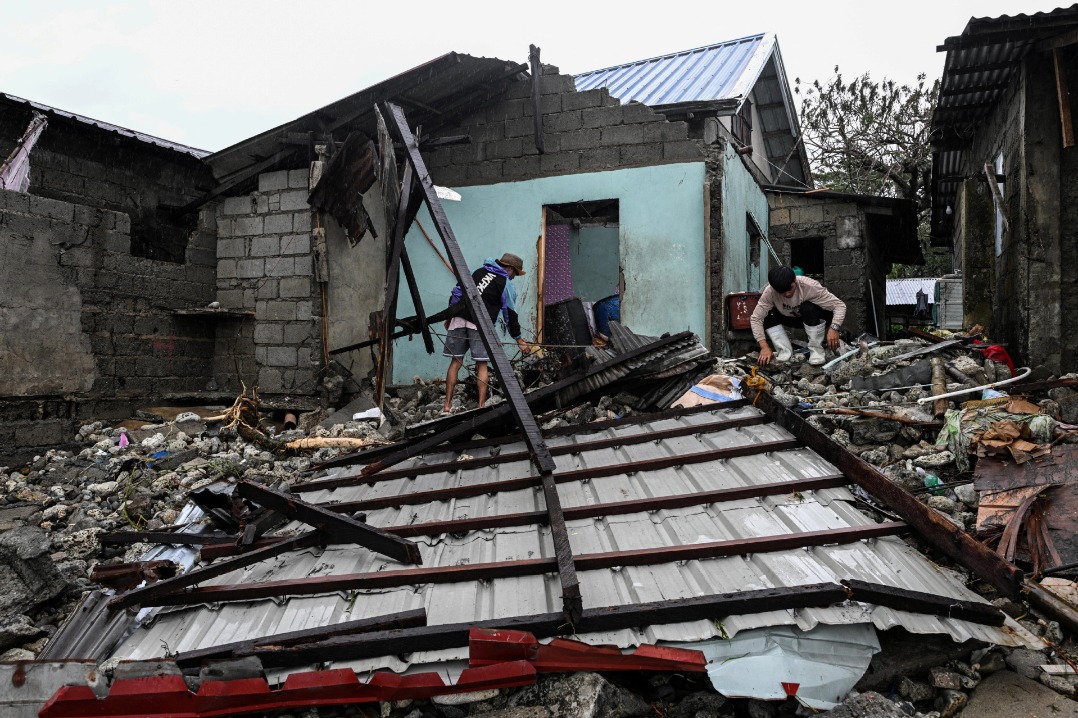ASEAN mulls carbon taxes to cut emissions
Challenge lies in enforcing it without burdening consumers, analysts say

Imposing a carbon tax is widely viewed as an effective way to drive low-carbon growth in Southeast Asia — one of the regions most vulnerable to climate change — but analysts say the challenge is how this will affect existing energy subsidies and how to avoid burdening consumers with higher prices.
Several members of the Association of Southeast Asian Nations are exploring carbon tax and other carbon-pricing mechanisms to reduce emissions and fulfill their climate commitments submitted to this year's United Nations Climate Change Conference, or COP30, now underway in Brazil.
Last month, Malaysia became the latest ASEAN member to unveil such plans, announcing it would roll out a carbon tax next year in line with COP30 pledges. In January, Thailand's Cabinet approved the implementation of carbon tax, with the cost of carbon emissions embedded into its existing excise tax system on fuel.
Singapore, which pioneered carbon pricing in 2019, currently levies about $19.2 per metric ton of carbon dioxide equivalent on industrial facilities. Indonesia enacted a law in 2021 to implement a carbon tax but has yet to put it into effect, while the Philippines and Vietnam are still studying the option.
Analysts said the key challenge for ASEAN lies in enforcing carbon taxes without disrupting the existing energy subsidies or burdening consumers with higher costs.
Putra Adhiguna, managing director of the Energy Shift Institute in Indonesia, said a carbon tax means the government is signaling long-term change and taking decarbonization seriously.
A mandatory carbon tax can also generate revenues to fund climate-related projects such as forest protection, Adhiguna said. However, the policy will land a cost somewhere — whether borne by consumers, businesses or the government — making it "quite challenging" to get political support, he said.
In Malaysia, the planned carbon tax is designed to complement the country's energy transition plan and will initially target high-emission industries such as iron, steel and energy before gradually extending it to other sectors.
Mixed signals
However, the country has also implemented targeted fossil fuel subsidies, which could "blunt the carbon price's effectiveness and send mixed signals" unless these subsidies are phased out alongside the new tax, said Khor Yu Leng, director of the Singapore-based consultancy Segi Enam Advisors.
Geoffrey Williams, founder and director of Williams Business Consultancy in Kuala Lumpur, said that while the proposed carbon tax appears to align with Malaysia's environmental commitments, it "may be misaligned with realities".
"There is a contradiction in imposing a carbon tax to cut emissions while at the same time subsidizing petrol and electricity generated by hydrocarbons," Williams said.
Despite these challenges, studies show that most citizens in Southeast Asia are aware of — and receptive to — carbon tax and its effectiveness in cutting emissions.
In Singapore, carbon pricing sends an "economic signal" to major emitters that they need to decarbonize by enhancing the business case for innovative and low-carbon solutions, said Melissa Low, a research fellow at the Center for Nature-based Climate Solutions at the National University of Singapore.
The Singaporean government has gradually increased the carbon tax rate to give companies and consumers time to adjust to the new policy, while offering utility rebates and climate vouchers to support lower-income households, Low said.
A Southeast Asia Climate Outlook Survey published last year by the ISEAS-Yusof Ishak Institute in Singapore found that more than 70 percent of nearly 3,000 respondents across ASEAN supported a national carbon tax, and 93 percent said they were "greatly or moderately willing" to bear personal costs rising from it.
Almost 60 percent of respondents also believed their lives would be greatly affected by climate change in the next 10 years, the report said.
A separate study published in December by the ASEAN Centre for Energy found that carbon pricing could help the region reduce emissions and achieve net-zero targets by 2050, with respondents showing a "predominantly positive perception "of its effectiveness.
Low said, "Each country in Southeast Asia needs to look at their national circumstances as well as aspirations of their people to decide how they can best address climate change."
prime@chinadailyapac.com
































